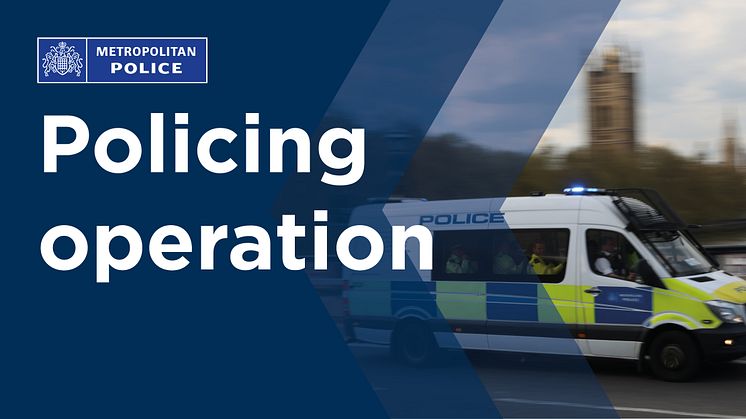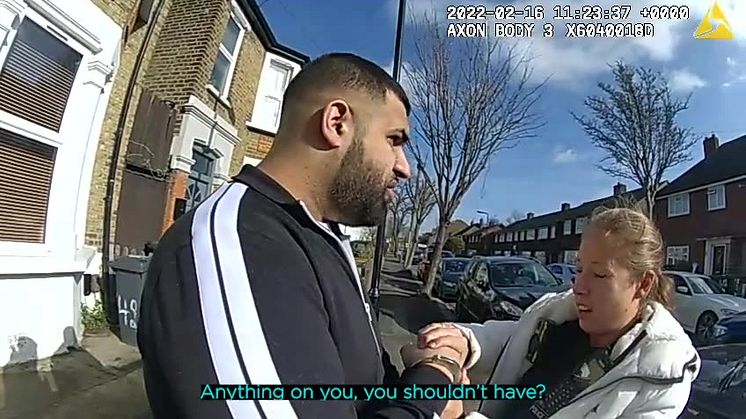
News -
Met officers target phone scammers who prey on elderly
The Met’s focus on catching predatory offenders has led to elderly people across London being protected from scammers.
Using data and intelligence, officers from local and specialist units have been able to link offences and target those who prey on our older communities.
In the past two weeks, an undercover Met operation led to the conviction of phone scammers who tricked pensioners into handing over their bank cards before draining their accounts. In another result, officers arrested a pair who were linked to women in their 90s being burgled.
Commander Kevin Southworth said: “Community crime fighting is the bedrock of how the Met polices London. We are using data and intelligence to spot patterns of offending and making sure we go after those who hurt some of the most vulnerable in our society.
“Burglary is a particularly intrusive crime that can be hugely distressing for the victims. We know from speaking with victims that they often feel a sense of violation, and remain fearful that someone could come into their home.
“Let these results be a warning to those who target older people that they won’t get away with it.”
One victim said: “I felt really low after this happened. I made the mistake and now I will have to pay for it.
“This money was my savings. I would encourage anyone who is the victim of a crime like this to contact the police and help prevent this happening.”
The three-month undercover Met operation led to a phone scamming ring being convicted of multiple offences. Officers’ covert work began after they received a report from an older man from Hampstead. They soon linked the crime to other reports across London and began work to track down those responsible.
Eyewitness accounts, CCTV, phone monitoring and undercover surveillance were some of the tactics used to trace the ring.
Arbaaz Khan was part of a group who tricked nine pensioners, with an average age of 87, from across London into handing over their bank cards.
The victims were persuaded they urgently needed to hand over their cards, and Khan would send one of his runners to collect it. They would then drain victims' bank accounts.
In total they stole £11,940 over nine offences between 1 November 2021 and 16 February 2022.
When officers arrested Khan on 16 February 2022, he attempted to throw one of his phones away. It was recovered and discovered he had used it that very morning to direct one of his group to the home of a 101-year-old woman.
Khan, 31 (01.01.93), of Tyndall Road, E10, pleaded guilty on Tuesday, 12 March to conspiracy to steal. He is due to be sentenced on Thursday, 9 May at Snaresbrook Crown Court.
Bradley Goode, 23 (08.04.00), of Tristram Close, E17, and Hanad Mohamed, 20 (22.08.03) of Francis Chichester Way, SW11, also pleaded guilty to conspiracy to steal. Mohamed will be sentenced on the same date, Goode had been sentenced to a community order of 120 hours unpaid work and ordered to undergo rehabilitation.
Abi Wood, CEO, Age UK London, said: “This is a terrible case of scamming older people who are so often targeted for this type of crime. In this case, the work of the Met police officers has been vital to prevent any more people becoming victims and we are pleased to see that the criminals were caught.
“Our advice to older people is to say no. Never disclose your bank details either over the phone or to someone in person who asks for it and never hand over your bank cards. If you are unsure check with your bank or someone you know before doing anything. For doorstep scams, keep all doors locked when answering the door as people can work together, use a chain on the door, especially if you are not expecting anyone, ask for ID and ask them to wait while you check with their organisation. A genuine person would not mind you doing this. If you feel unsafe or pressured contact family, a friend, or the police.”
+ In another case, officers based in north east London investigated reports that a man and woman had preyed on women in their 90s. A couple were reported to have targeted women in Chingford while posing as neighbours in need or police officers. In one report, suspects allegedly took £500 from one woman’s purse, and cash from another woman who had hidden her money inside a jug.
Local and specialist officers worked together to track down CCTV and visit the victims to learn what happened. They heard how a couple were allegedly intimidating their victims in their own homes, knowing that they couldn’t fight back.
They would allegedly pose as neighbours who desperately needed help, or as police officers who wanted to warn the women about personal safety. The women they targeted tried to help the “neighbours” and kindly gave them their own money, or let them in when they thought they were officers wanting to given them some advice.
Local officers worked with specialists from the task force group and the alleged offenders were arrested on suspicion of burglary.
The Met will continue to work on improving its service to Londoners, putting more resources into local, frontline policing, listening to the community, protecting the vulnerable, and tracking down offenders.
+ ADVICE: Phone scams:
Your bank and the police will never ring and ask you to verify your PIN, withdraw cash or purchase high-value goods. They’ll also never come to your home to collect your card, cash or purchased items. If you get a call like this, end the call.
If you get a call from your bank or the police, make sure you know who the person is before handing over any personal details. You can do this by calling your bank (the number on the back of your card) or the police (101) on a different phone line.
To get a different line, use a phone owned by a family member, friend or neighbour. This is because scammers can keep phone lines open after pretending to hang up. So while you think you’re making a new phone call, the line is still open to the scammer, who pretends to be someone from your bank or the police (also see Courier fraud).
Depending on your bank, the security questions they ask may be different, but they’ll never ask you to authorise anything by entering your PIN into your phone.
Follow this link to read or listen to: The Little Book of Big Scams




